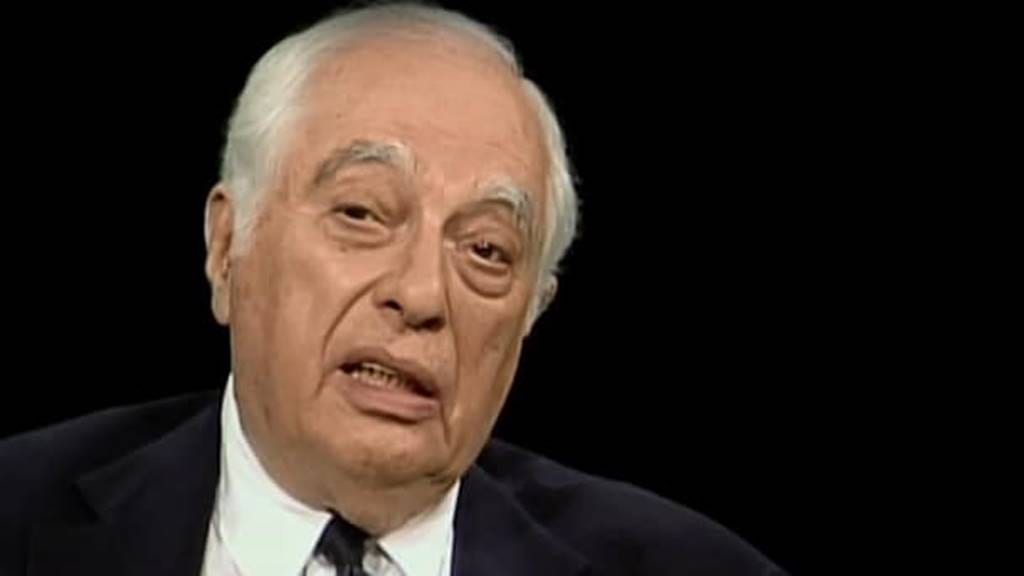Ortadoğu ve Türkiye üzerine otorite olan Ermenilerin satin alamadigi İngiliz doğumlu Amerikalı tarihçi Bernard Lewis, 19.05.2018 tarihinde 101 yaşında hayata gözlerini yummuştur. Toprağı bol olsun.
Bernard Lewis Died last Saturday the 19th of May
The great scholar of the Middle East predicted its recent convulsions.
Once upon a time Western scholars of Middle Eastern culture and history were known as Orientalists. That label is now considered politically incorrect, like so much else, but we can safely say that the last of the great Orientalists was Bernard Lewis, who died Saturday at age 101.
Born in London, Lewis served in the British army in World War II. But he devoted most of his life to the study of Middle Eastern languages, religion and history, with a particular focus on the interaction of Islam and the West. .
Bernard Lewis, Influential and Renowned Middle East Scholar, Dies at 101
Generations of diplomats, intelligence personnel learned from the writings of the British-American historian, who warned of a ‘clash of civilizations’ between Islam and the West, a term he coined
 Bernard Lewis on the Charlie Rose show, 2002.
Bernard Lewis on the Charlie Rose show, 2002.
· Thus spoke Bernard Lewis
· This day in Jewish history / A historian who didn’t support the invasion of Iraq is born
Jewish-American historian Bernard Lewis, one of the most famous and influential Middle East scholars in the world who warned of a “clash of civilizations” between Islam and the West, died Saturday at the age of 101 in New Jersey.
Lewis was a consultant to both Israeli leaders and two U.S. presidents. Generations of students, intelligence personnel and diplomats learned about the history of Islam through his writings. His research, which dealt with the history of the Middle East, brought him fame, but also many critics and enemies around the world. One of his strongest critics was the Palestinian-born intellectual Edward Said, who accused him of a patronizing attitude toward Islam, demagoguery and ignorance. “For some, I’m the towering genius,” Lewis said in 2012. “For others, I’m the devil incarnate.”
Lewis was born in London in 1916 to a pair of Jewish immigrants from Eastern Europe. He began his PhD at what then known as the School of Oriental Studies at the University of London, completing it three years later. He served in the British Army during the Second World War, including in intelligence. He worked as a lecturer at the University of London until moving to the United States to accept a joint position at Princeton University.
Bernard Lewis on the Charlie Rose show, 2002.
Throughout his long career, Lewis was accompanied by two raging controversies. The most prominent one involved Said, who in his 1978 book “Orientalism” wrote that Western historians of the Mideast like Lewis had a condescending, negative approach to their subject. “Edward Said simply did not understand anything,” Lewis told Haaretz in 2001.
Israeli Middle East scholar and diplomat Shimon Shamir wrote in this context that the rival schools of thought – that of Lewis and that of Said – were not equally popular. “In fact, there was no equal footing whatsoever between them, for Saidism took American campuses by storm while scholars from the school represented by Lewis were marginalized, with the label ‘Orientalists’ haunting them with a mixture of condemnation and mockery,” he said.
Lewis’s second controversy dealt with the Armenian genocide. Lewis argued that there was no similarity between the fate of the Armenians and the murder of the Jews in the Holocaust, and that the Turks did not commit genocide against the Armenians. Lewis was even tried in France for his remarks, which were interpreted as denial of the Armenian genocide, and lost.
Lewis wrote about 30 books and hundreds of articles throughout his life. He coined the term “clash of civilizations” before it was popularized by the late Harvard professor Samuel Huntington.
Lewis is survived by two children, seven grandchildren and three great-grandsons.
